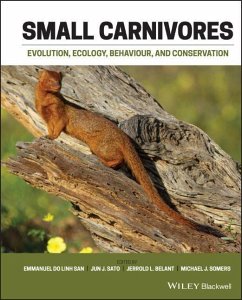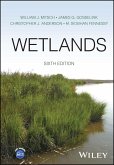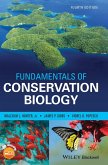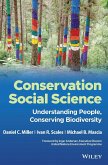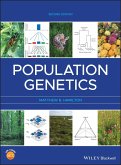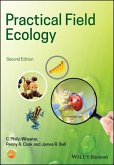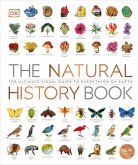Emmanuel Do Linh San, Jun J. Sato, Jerrold L. Belant, Michael J. SomersEvolution, Ecology, Behaviour and Conservation
Small Carnivores
Evolution, Ecology, Behaviour and Conservation
Herausgegeben:Do Linh San, Emmanuel; Sato, Jun J.; Belant, Jerrold L.; Somers, Michael J.
Emmanuel Do Linh San, Jun J. Sato, Jerrold L. Belant, Michael J. SomersEvolution, Ecology, Behaviour and Conservation
Small Carnivores
Evolution, Ecology, Behaviour and Conservation
Herausgegeben:Do Linh San, Emmanuel; Sato, Jun J.; Belant, Jerrold L.; Somers, Michael J.
- Gebundenes Buch
- Merkliste
- Auf die Merkliste
- Bewerten Bewerten
- Teilen
- Produkt teilen
- Produkterinnerung
- Produkterinnerung
Small Carnivores: Evolution, Ecology, Behaviour, and Conservation
This book focuses on the 232 species of the mammalian Order Carnivora with an average body mass "This is a book that has been needed for decades. It is the first compendium of recent research on a group of mammals which has received almost no attention before the early 1970s. This book covers a wide range of subdisciplines and techniques and should be considered a solid baseline for further research on this little-known group of highly interesting mammals. As our knowledge regarding how ecosystems function increases, then the…mehr
Andere Kunden interessierten sich auch für
![Wetlands Wetlands]() William J. Mitsch (Florida Gulf Coast University, FL, USA)Wetlands135,99 €
William J. Mitsch (Florida Gulf Coast University, FL, USA)Wetlands135,99 €![Arctic Ecology Arctic Ecology]() Arctic Ecology69,99 €
Arctic Ecology69,99 €![Fundamentals of Conservation Biology Fundamentals of Conservation Biology]() Malcolm L. Hunter (University of Maine)Fundamentals of Conservation Biology109,99 €
Malcolm L. Hunter (University of Maine)Fundamentals of Conservation Biology109,99 €![Conservation Social Science Conservation Social Science]() Conservation Social Science91,99 €
Conservation Social Science91,99 €![Population Genetics Population Genetics]() Matthew B. HamiltonPopulation Genetics111,99 €
Matthew B. HamiltonPopulation Genetics111,99 €![Practical Field Ecology Practical Field Ecology]() C. Philip Wheater (Manchester Metropolitan University)Practical Field Ecology68,99 €
C. Philip Wheater (Manchester Metropolitan University)Practical Field Ecology68,99 €![The Natural History Book The Natural History Book]() DKThe Natural History Book33,99 €
DKThe Natural History Book33,99 €-
-
-
Small Carnivores: Evolution, Ecology, Behaviour, and Conservation
This book focuses on the 232 species of the mammalian Order Carnivora with an average body mass "This is a book that has been needed for decades. It is the first compendium of recent research on a group of mammals which has received almost no attention before the early 1970s. This book covers a wide range of subdisciplines and techniques and should be considered a solid baseline for further research on this little-known group of highly interesting mammals. As our knowledge regarding how ecosystems function increases, then the valuable role of small carnivores and the necessity for their conservation should be regarded as of paramount importance. The topics covered in this book should therefore be of great interest not only to academics and wildlife researchers, but also to the interested layman."
Professor Anne Rasa, Ethologist
Hinweis: Dieser Artikel kann nur an eine deutsche Lieferadresse ausgeliefert werden.
This book focuses on the 232 species of the mammalian Order Carnivora with an average body mass "This is a book that has been needed for decades. It is the first compendium of recent research on a group of mammals which has received almost no attention before the early 1970s. This book covers a wide range of subdisciplines and techniques and should be considered a solid baseline for further research on this little-known group of highly interesting mammals. As our knowledge regarding how ecosystems function increases, then the valuable role of small carnivores and the necessity for their conservation should be regarded as of paramount importance. The topics covered in this book should therefore be of great interest not only to academics and wildlife researchers, but also to the interested layman."
Professor Anne Rasa, Ethologist
Hinweis: Dieser Artikel kann nur an eine deutsche Lieferadresse ausgeliefert werden.
Produktdetails
- Produktdetails
- Verlag: Wiley & Sons / Wiley-Blackwell
- Artikelnr. des Verlages: 1W118943280
- 1. Auflage
- Seitenzahl: 624
- Erscheinungstermin: 25. Juli 2022
- Englisch
- Abmessung: 259mm x 209mm x 40mm
- Gewicht: 1614g
- ISBN-13: 9781118943281
- ISBN-10: 1118943287
- Artikelnr.: 59919844
- Herstellerkennzeichnung
- Libri GmbH
- Europaallee 1
- 36244 Bad Hersfeld
- gpsr@libri.de
- Verlag: Wiley & Sons / Wiley-Blackwell
- Artikelnr. des Verlages: 1W118943280
- 1. Auflage
- Seitenzahl: 624
- Erscheinungstermin: 25. Juli 2022
- Englisch
- Abmessung: 259mm x 209mm x 40mm
- Gewicht: 1614g
- ISBN-13: 9781118943281
- ISBN-10: 1118943287
- Artikelnr.: 59919844
- Herstellerkennzeichnung
- Libri GmbH
- Europaallee 1
- 36244 Bad Hersfeld
- gpsr@libri.de
About the Editors Emmanuel Do Linh San is an Associate Professor in the Department of Zoology and Entomology, University of Fort Hare, South Africa. He is the Founder and Director of African Small Carnivore Research Initiatives (ASCaRIs). He is currently an Associate Editor of African Journal of Wildlife Research, Mammal Study and Small Carnivore Conservation. Jun J. Sato is a Professor in the Department of Biotechnology, Fukuyama University, Japan. He received Incentive Awards for Promising Young Researchers from the Mammal Society of Japan in 2012 and the Zoological Society of Japan in 2016. He is currently the Editor-in-Chief of Mammal Study. Jerrold L. Belant is the Boone and Crockett Chair of Wildlife Conservation in the Department of Fisheries and Wildlife at Michigan State University, USA. He is a former Chair of the IUCN SSC Small Carnivore Specialist Group and Editor-in-Chief of Small Carnivore Conservation. He is currently on the Editorial Board of BioScience and Deputy Editor-in-Chief of Ursus. Michael J. Somers is a Professor at the Mammal Research Institute, Department of Zoology and Entomology, University of Pretoria, South Africa. He is currently an Associate Editor of African Journal of Wildlife Research and Mammalian Biology, as well as a member of several IUCN SSC specialist groups.
Foreword
Reviewing process and reviewers
List of contributors
Part I: Introduction
Chapter 1 The World's Small Carnivores Definitions, Richness, Distribution, Conservation Status, Ecological Roles, and Research Efforts
Part II: Evolution, Systematics and Distribution
Chapter 2 Molecular Systematics of the Caniform Carnivora and its Implications for Conservation
Chapter 3 Systematics and Evolution of the Mongooses (Herpestidae, Carnivora)
Chapter 4 Late Quaternary Biogeography of Small Carnivores in Europe
Chapter 5 Ecomorphological Disparity of Small Carnivore Guilds
Chapter 6 Beyond Black and White
Addressing Colour Variation in the Context of Local Environmental Conditions for the Aposematic American Hog-nosed Skunk
Part III: Ecology, Behaviour, and Diseases
Chaper 7 The function of Carnivore Latrines: Review, Case Studies, and a Research Framework for Hypothesis- Testing
Chaper 8 Factors Affecting European Badger Movement Lengths and Propensity: Evidence of Density-Dependent Effects?
Chapter 9 Behavioural Adaptations of Molina's Hog-Nosed Skunk to the Conversion of Natural Grasslands into Croplands in the Argentine Pampas
Chapter 10 Activity and Movement Patterns of Urban Stone Martens
Chapter 11 A 9-Year Demographic and Health Survey of a European Mink Population in Navarre (Spain): Role of the Canine Distemper Virus
Chapter 12 Density of African Civets in a Moist Mountain Bushveld Region of South Africa
Part IV: Interspecific Interactions and Community Ecology
Chapter 13 Spatio-Temporal Overlap Between a Native and an Exotic Carnivore in Madagascar: Evidence of Spatial Exclusion
Chapter 14 Colonization of Agricultural Landscapes by the Pine Marten: Influence of Habitat Constraints and Interspecific Competition
Chapter 15 Spatial and Temporal Resource Partitioning of Small Carnivores in the African Rainforest: Implications for Conservation and Management
Chapter 16 Ecological Separation and Coexistence in a Carnivore Community in North-Central Thailand
Chapter 17 Interactions Between Honey Badgers and Other Predators in the Southern Kalahari: Intraguild Predation and Facilitation
Chapter 18 Seed Dispersal by Mesocarnivores Importance and Functional Uniqueness in a Changing World
Chapter 19 Ecology and Conservation of Southeast Asian Civets (Viverridae) and Mongooses (Herpestidae)
Part V: Interactions with People and Conservation
Chapter 20 Small Carnivore Introductions Ecological and Biological Correlates of Success
Chapter 21 Global Review of the Effects of Small Carnivores on Threatened Species
Chapter 22 The Global Consumptive Use of Small Carnivores Social, Cultural, Religious, Economic, and Subsistence Trends from Prehistoric to Modern Times
Chapter 23 Conservation Status of the North American River Otter in the United States and Canada Assessing Management Practices and Public Perceptions of the Species
Index
Reviewing process and reviewers
List of contributors
Part I: Introduction
Chapter 1 The World's Small Carnivores Definitions, Richness, Distribution, Conservation Status, Ecological Roles, and Research Efforts
Part II: Evolution, Systematics and Distribution
Chapter 2 Molecular Systematics of the Caniform Carnivora and its Implications for Conservation
Chapter 3 Systematics and Evolution of the Mongooses (Herpestidae, Carnivora)
Chapter 4 Late Quaternary Biogeography of Small Carnivores in Europe
Chapter 5 Ecomorphological Disparity of Small Carnivore Guilds
Chapter 6 Beyond Black and White
Addressing Colour Variation in the Context of Local Environmental Conditions for the Aposematic American Hog-nosed Skunk
Part III: Ecology, Behaviour, and Diseases
Chaper 7 The function of Carnivore Latrines: Review, Case Studies, and a Research Framework for Hypothesis- Testing
Chaper 8 Factors Affecting European Badger Movement Lengths and Propensity: Evidence of Density-Dependent Effects?
Chapter 9 Behavioural Adaptations of Molina's Hog-Nosed Skunk to the Conversion of Natural Grasslands into Croplands in the Argentine Pampas
Chapter 10 Activity and Movement Patterns of Urban Stone Martens
Chapter 11 A 9-Year Demographic and Health Survey of a European Mink Population in Navarre (Spain): Role of the Canine Distemper Virus
Chapter 12 Density of African Civets in a Moist Mountain Bushveld Region of South Africa
Part IV: Interspecific Interactions and Community Ecology
Chapter 13 Spatio-Temporal Overlap Between a Native and an Exotic Carnivore in Madagascar: Evidence of Spatial Exclusion
Chapter 14 Colonization of Agricultural Landscapes by the Pine Marten: Influence of Habitat Constraints and Interspecific Competition
Chapter 15 Spatial and Temporal Resource Partitioning of Small Carnivores in the African Rainforest: Implications for Conservation and Management
Chapter 16 Ecological Separation and Coexistence in a Carnivore Community in North-Central Thailand
Chapter 17 Interactions Between Honey Badgers and Other Predators in the Southern Kalahari: Intraguild Predation and Facilitation
Chapter 18 Seed Dispersal by Mesocarnivores Importance and Functional Uniqueness in a Changing World
Chapter 19 Ecology and Conservation of Southeast Asian Civets (Viverridae) and Mongooses (Herpestidae)
Part V: Interactions with People and Conservation
Chapter 20 Small Carnivore Introductions Ecological and Biological Correlates of Success
Chapter 21 Global Review of the Effects of Small Carnivores on Threatened Species
Chapter 22 The Global Consumptive Use of Small Carnivores Social, Cultural, Religious, Economic, and Subsistence Trends from Prehistoric to Modern Times
Chapter 23 Conservation Status of the North American River Otter in the United States and Canada Assessing Management Practices and Public Perceptions of the Species
Index
Foreword
Reviewing process and reviewers
List of contributors
Part I: Introduction
Chapter 1 The World's Small Carnivores Definitions, Richness, Distribution, Conservation Status, Ecological Roles, and Research Efforts
Part II: Evolution, Systematics and Distribution
Chapter 2 Molecular Systematics of the Caniform Carnivora and its Implications for Conservation
Chapter 3 Systematics and Evolution of the Mongooses (Herpestidae, Carnivora)
Chapter 4 Late Quaternary Biogeography of Small Carnivores in Europe
Chapter 5 Ecomorphological Disparity of Small Carnivore Guilds
Chapter 6 Beyond Black and White
Addressing Colour Variation in the Context of Local Environmental Conditions for the Aposematic American Hog-nosed Skunk
Part III: Ecology, Behaviour, and Diseases
Chaper 7 The function of Carnivore Latrines: Review, Case Studies, and a Research Framework for Hypothesis- Testing
Chaper 8 Factors Affecting European Badger Movement Lengths and Propensity: Evidence of Density-Dependent Effects?
Chapter 9 Behavioural Adaptations of Molina's Hog-Nosed Skunk to the Conversion of Natural Grasslands into Croplands in the Argentine Pampas
Chapter 10 Activity and Movement Patterns of Urban Stone Martens
Chapter 11 A 9-Year Demographic and Health Survey of a European Mink Population in Navarre (Spain): Role of the Canine Distemper Virus
Chapter 12 Density of African Civets in a Moist Mountain Bushveld Region of South Africa
Part IV: Interspecific Interactions and Community Ecology
Chapter 13 Spatio-Temporal Overlap Between a Native and an Exotic Carnivore in Madagascar: Evidence of Spatial Exclusion
Chapter 14 Colonization of Agricultural Landscapes by the Pine Marten: Influence of Habitat Constraints and Interspecific Competition
Chapter 15 Spatial and Temporal Resource Partitioning of Small Carnivores in the African Rainforest: Implications for Conservation and Management
Chapter 16 Ecological Separation and Coexistence in a Carnivore Community in North-Central Thailand
Chapter 17 Interactions Between Honey Badgers and Other Predators in the Southern Kalahari: Intraguild Predation and Facilitation
Chapter 18 Seed Dispersal by Mesocarnivores Importance and Functional Uniqueness in a Changing World
Chapter 19 Ecology and Conservation of Southeast Asian Civets (Viverridae) and Mongooses (Herpestidae)
Part V: Interactions with People and Conservation
Chapter 20 Small Carnivore Introductions Ecological and Biological Correlates of Success
Chapter 21 Global Review of the Effects of Small Carnivores on Threatened Species
Chapter 22 The Global Consumptive Use of Small Carnivores Social, Cultural, Religious, Economic, and Subsistence Trends from Prehistoric to Modern Times
Chapter 23 Conservation Status of the North American River Otter in the United States and Canada Assessing Management Practices and Public Perceptions of the Species
Index
Reviewing process and reviewers
List of contributors
Part I: Introduction
Chapter 1 The World's Small Carnivores Definitions, Richness, Distribution, Conservation Status, Ecological Roles, and Research Efforts
Part II: Evolution, Systematics and Distribution
Chapter 2 Molecular Systematics of the Caniform Carnivora and its Implications for Conservation
Chapter 3 Systematics and Evolution of the Mongooses (Herpestidae, Carnivora)
Chapter 4 Late Quaternary Biogeography of Small Carnivores in Europe
Chapter 5 Ecomorphological Disparity of Small Carnivore Guilds
Chapter 6 Beyond Black and White
Addressing Colour Variation in the Context of Local Environmental Conditions for the Aposematic American Hog-nosed Skunk
Part III: Ecology, Behaviour, and Diseases
Chaper 7 The function of Carnivore Latrines: Review, Case Studies, and a Research Framework for Hypothesis- Testing
Chaper 8 Factors Affecting European Badger Movement Lengths and Propensity: Evidence of Density-Dependent Effects?
Chapter 9 Behavioural Adaptations of Molina's Hog-Nosed Skunk to the Conversion of Natural Grasslands into Croplands in the Argentine Pampas
Chapter 10 Activity and Movement Patterns of Urban Stone Martens
Chapter 11 A 9-Year Demographic and Health Survey of a European Mink Population in Navarre (Spain): Role of the Canine Distemper Virus
Chapter 12 Density of African Civets in a Moist Mountain Bushveld Region of South Africa
Part IV: Interspecific Interactions and Community Ecology
Chapter 13 Spatio-Temporal Overlap Between a Native and an Exotic Carnivore in Madagascar: Evidence of Spatial Exclusion
Chapter 14 Colonization of Agricultural Landscapes by the Pine Marten: Influence of Habitat Constraints and Interspecific Competition
Chapter 15 Spatial and Temporal Resource Partitioning of Small Carnivores in the African Rainforest: Implications for Conservation and Management
Chapter 16 Ecological Separation and Coexistence in a Carnivore Community in North-Central Thailand
Chapter 17 Interactions Between Honey Badgers and Other Predators in the Southern Kalahari: Intraguild Predation and Facilitation
Chapter 18 Seed Dispersal by Mesocarnivores Importance and Functional Uniqueness in a Changing World
Chapter 19 Ecology and Conservation of Southeast Asian Civets (Viverridae) and Mongooses (Herpestidae)
Part V: Interactions with People and Conservation
Chapter 20 Small Carnivore Introductions Ecological and Biological Correlates of Success
Chapter 21 Global Review of the Effects of Small Carnivores on Threatened Species
Chapter 22 The Global Consumptive Use of Small Carnivores Social, Cultural, Religious, Economic, and Subsistence Trends from Prehistoric to Modern Times
Chapter 23 Conservation Status of the North American River Otter in the United States and Canada Assessing Management Practices and Public Perceptions of the Species
Index

